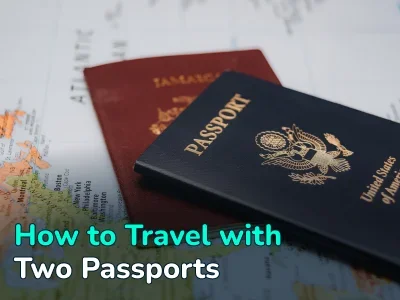
How to Get an E-Visa to Thailand in 2025: Step-by-Step Instructions
In December 2024, the Kingdom of Thailand officially announced the introduction of the electronic visa (e-Visa) system, effective January 1, 2025. The system has been implemented and is fully operational, eliminating the need for visa applicants to submit their passports and other documents in person at the Embassy or Consulate-General of the Kingdom of Thailand. Now, the entire process is conducted through the portal thaievisa.go.th. Additionally, the Royal Thai Embassy has announced that applications under the old visa system will no longer be accepted after December 24, 2024.
Thailand E-Visa Application Checklist
To apply for a visa through the portal, applicants must:
- Create an account on the portal thaievisa.go.th.
- Complete the online application form and upload digital copies of the required documents.
- Pay the visa fee. Currently, online payment is not available. After submitting the application, the applicant will receive a special receipt with payment details and a QR code. Upon receiving this receipt, the applicant has two weeks to pay the fee in cash at the local Royal Thai Embassy. However, it is important to note that the embassy does not accept banknotes issued before 2009, especially if they are damaged (folded, worn, or torn).
- Wait for application processing. Applications are processed within two weeks of successful payment. If approved, the applicant will receive a confirmation via email. This confirmation must be printed and presented at the airport during boarding and at the immigration checkpoint upon arrival in Thailand.
- In case of rejection, the applicant will be notified of the reasons for refusal. If the rejection is due to missing documents, the notification will specify which documents need to be provided.
The primary advantage of the e-Visa system is the simplification and acceleration of the visa application process, as well as the reduction of administrative burdens. The system is integrated with Thailand’s immigration and other governmental agencies, ensuring safer and more efficient data verification.
Previously, obtaining a visa required personal visits to consulates or embassies, which increased costs for citizens of countries without a local Thai consulate.
What’s Important to Consider
It is important to note that the policies for visa-free entry and visas on arrival remain unchanged. Citizens of 93 countries, including Russia, can enter Thailand without a visa and stay for up to 60 days. Citizens of 31 countries can still apply for a visa upon arrival. However, for longer stays or non-tourist purposes, such as work or study, it is recommended to use the e-Visa system to apply for a long-term visa.
Important details to think about:
- Document translation. All submitted documents must be translated into English. It is recommended to use a professional translation agency or an individual specialist for this task, and the translation must then be notarized.
- Additional requirements. In rare cases, Thai authorities may request additional documents or require the applicant’s personal presence for an interview.
- Visa fees. The visa fee varies depending on the type of visa and the applicant’s nationality. It is important to note that if the visa application is rejected by the Thai authorities, even fully paid fees are non-refundable under any circumstances.
- Contact information. For further information, it is strongly recommended to contact the Royal Thai Embassy directly rather than relying on third-party sources to ensure accurate and up-to-date guidance.
Before planning your trip to Thailand, it is crucial to keep in mind several important factors to avoid delays and complications upon entry.
- Passport validity. Travelers’ passports must be valid for at least six months from the date of entry into Thailand. This is a mandatory requirement of immigration authorities. If your passport is set to expire sooner, it is recommended to renew it in advance. Failure to meet this requirement may result in denial of visa issuance or extension.
- Customs regulations:
- Travelers are allowed to bring certain goods duty-free, including alcohol (up to 1 liter) and tobacco products (up to 200 cigarettes or 250 grams of tobacco).
- Large sums of money (equivalent to $20,000 or more) must be declared upon entry or exit.
- Certain items, such as electronic cigarettes and hookahs, are prohibited for importation and use in Thailand. Violation of this rule can result in significant penalties.
- Medical requirements. While there are no mandatory vaccination requirements for entering Thailand, the following vaccinations are recommended:
- Hepatitis A and B, especially if you plan to stay for an extended period or visit remote areas.
- Typhoid, if you intend to travel outside major tourist zones.
- Malaria prevention: Although the risk of malaria is low in major tourist destinations, it remains relevant in rural areas. Consult a healthcare provider for advice on preventive measures. Additionally, it is highly advisable to secure travel insurance that covers medical treatment and emergencies, as healthcare costs in Thailand can be high.
Author
I write informative articles about real estate, investments, job opportunities, taxes, etc.
























